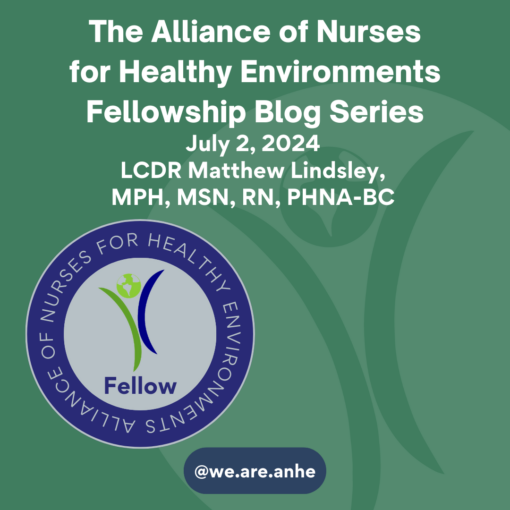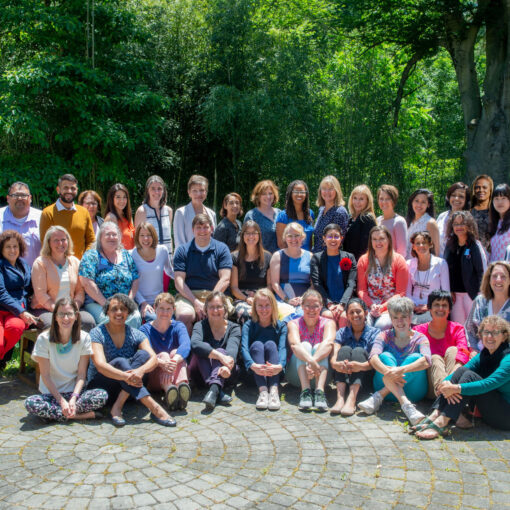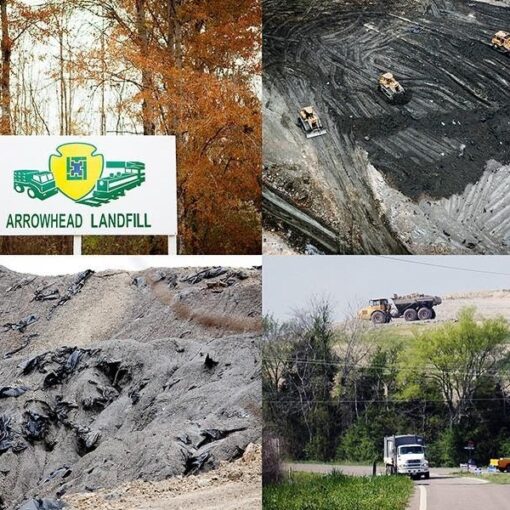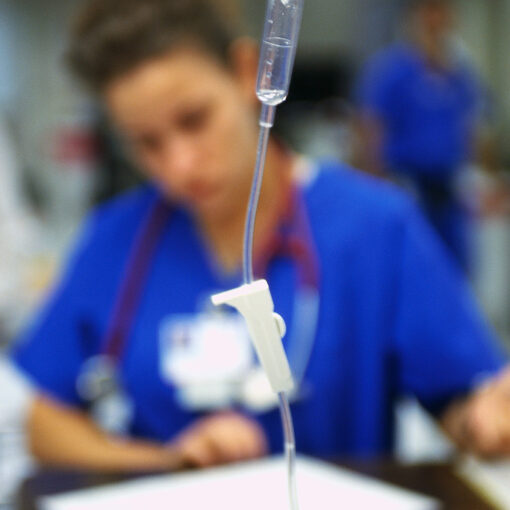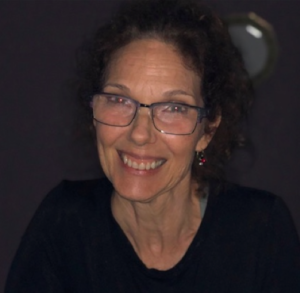
In June 2019, the Alliance of Nurses for Healthy Environments (ANHE) launched the first of its kind Environmental Health Nurse Fellowship program to train nurses to work with communities in tackling serious environmental health threats. Funded by the Kresge Foundation, the program has a particular focus on climate and health equity, environmental justice, and climate resilience.bPaired with expert environmental health nurse mentors, the fellows are conducting projects in partnership with communities to build support for community-driven solutions. Learn more about the nurses participating in the 2019-2020 fellowship cohort here.
We asked ANHE fellow Christine Fasching Maphis the following questions (in italics). You can read her answers in regular font below each question
What brought you to the ANHE fellowship program, and what excites you about this program?
The Fellowship has been an amazing opportunity to learn from and be part of a growing collective who understands the potential for nursing’s active engagement to address climate and health related issues. It has reinforced for me the necessity of empowering the profession to engage personally and professionally in our communities of influence for sustainable health care solutions.
I often ask myself the question “where are the nurses?” in relation to issues of our time including health care delivery, financing, accessibility and equity, practice accountability, social injustice, trauma responses, and climate change. The Fellowship has provided me an opportunity to immerse myself in learning more about climate change and population health risks and how to partner and collaborate with others around reducing those risks. What I’m most excited about is discovering that there is an amazing tribe of nurses out there super engaged and actively involved in collaboration to professionally impact these issues.
Please describe your experience in the fellowship program so far.
When I came to the Fellowship, I discovered a large cohort of amazing nurses, nurse researchers, advocates, mentors, and role models who are working diligently to bring our ethical and professional standards and responsibilities to the service of population health needs in a meaningful way. I am learning invaluable information as well as effective education and advocacy strategies for mitigating climate change and building community resilience. I’m also learning how to best educate my students and colleagues about this issue.
I’ve been challenged by the very real experience of climate grief, and its accompanying feelings of anxiety, frustration, anger, powerlessness, and the potential for hopelessness. I am challenged to find ways to suspend incredulity and judgement in favor of warmly educating colleagues and students that our actions in the health care arena, as educators, and personally really do have an impact, individually and collectively. I’ve also been challenged in my attempts to better understand my own carbon and chemical footprint and how to minimize that by choosing my diet carefully and using my purchasing power to support investments in local and environmentally conscious products.
Can you tell us a bit about your fellowship project and the partnering community and community-based organization?
For my fellowship project, I’m partnering with local non-profit organization New Community Project “Vine & Fig”. Their vision is, “A renewed Shenandoah Valley with abundance and enough for all through permaculture and food justice, hospitality and education, community organizing and contemplative action. We are an education and demonstration center for sustainable and just living; a supportive home welcoming friends experiencing homelessness and addictions and refugees from war; and a project incubator to hatch works of justice, peace, and regeneration in our community, the Valley, and beyond.”
This is a super talented, committed and truly authentic group of people that have been actively living and role modeling these values in amazing ways in our local community. For my project, I have the great good fortune of partnering with them in their 50 by 25 Clean Energy for All, Call to Action campaign. This is a campaign to petition our city council to update the city code to: 1) establish a directive for our local electric cooperative to mandate renewable electricity from wind and solar sources, 2) to establish a minimum renewable energy requirement of 50% solar and wind by 2025 and 100% by 2030, 3) to improve energy efficiency by 25% in our municipal and school operations by 2025, and 4) to incentivize energy efficiency programs to reduce energy poverty and make housing more affordable for city residents. In addition to garnering signatures for petitioning city council, I am providing input to include education about the health risks associated with climate change and the health benefits of adopting clean energy and community engagement in climate mitigation, adaptation, and resilience. The Fellowship program has provided access to outstanding education and resources and tools for understanding the issues, for partnering and building relationships with local organizations, for effective outreach and raising awareness, and for engaging in civil action.
Please describe how the ANHE fellowship program has changed or shaped the way you think about your role and the role of nurses in general in addressing environmental health. How do you think the ANHE fellowship program will impact your next steps or career in the future?
The Fellowship has validated and supported my understanding of the role of nurses in addressing environmental health, and it has equipped me to more robustly engage in educating and empowering the nursing community and my local community. For example, because of my passion for environmental health and participation in the fellowship, I was asked to partner with a the University of Virginia to create an educational offering for nurses and other health care providers “Protecting Health in a Changing Climate” which will be offered on April 18th, 2020 (View the event agenda here). The fellowship has also informed my doctoral project to amplify health care transformation through exploring and increasing nursing’s awareness and engagement in personal and professional environmental health practices.
The climate crisis, and global apathy and inaction, resurrected the incredulous question for me – where are the “grown-ups”, the people in charge, those who have knowledge, and power to act? Professionally for me, that had become, “Where are the nurses?”. My experience in the fellowship program has afforded me the opportunity to ask myself and my friends, family members, nurse colleagues, nursing students, and community members the question, and to challenge ourselves to ensure that future generations will know that we stood up and took action.
What recommendations, tips, or lessons learned would you like to share with other nurses who want to get more involved with environmental health initiatives and projects?
I would encourage other nurses who would like to get involved to sign up for ANHE, to take advantage of the plethora of educational resources available through the organization, to petition your health care and professional organizations to compel environment and climate change curricular and educational requirements and competencies, and to lend your voice and expertise to local initiatives to protect human health and build community resilience.
Is there anything additional you would like to share?
It’s been a tremendous honor to receive the education and support afforded by the fellowship sponsors and organizers, and to be mentored by the nurse leaders – the giants who have been advocating for, educating, and empowering nurses to step up to our role in addressing the climate change challenge.
Christine Fasching Maphis, MSN, RN-BC, FNP-BC is a Psychiatric Mental Health Nurse, Family Nurse Practitioner and teaches Psychiatric and Mental Health Nursing and the Impact of Chronic Illness at James Madison University School of Nursing. Christine is passionate about our planet and natural resources, as well as the huge impact nurses can have in influencing population health through initiatives that mitigate and bring awareness to climate change. Through the ANHE fellowship program, Christine hopes to learn more about empowering nurses to engage personally and professionally in their communities to initiate and support sustainable solutions.

